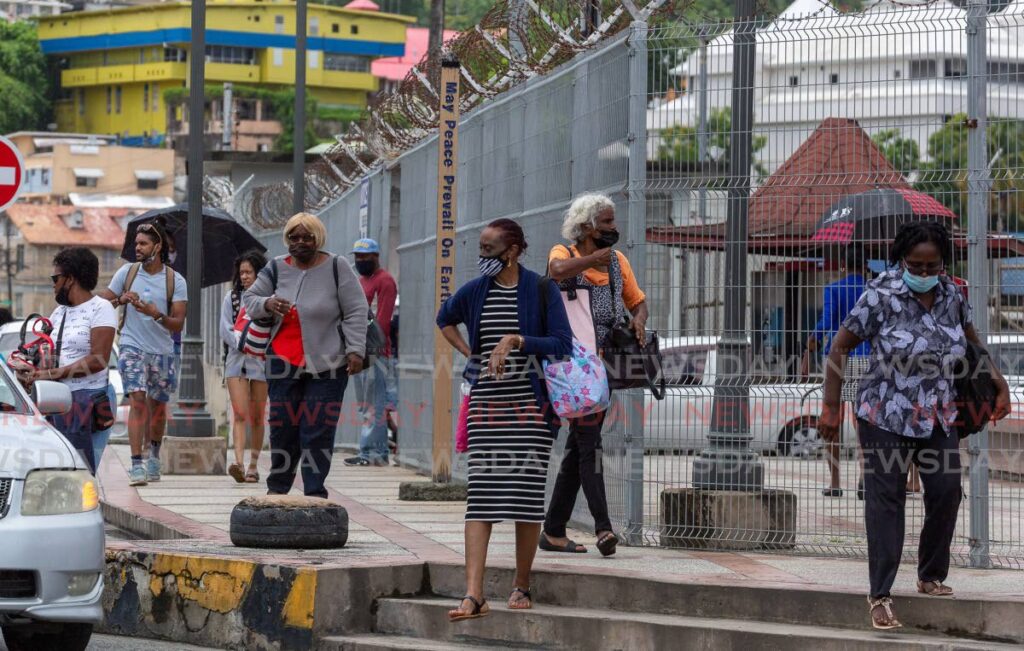[UPDATED] 4 cases of omicron XBB.1.5 present in Trinidad and Tobago

PROFESSOR of molecular genetics and virology at UWI, Christine Carrington, said that four cases of the omicron XBB.1.5 variant have been detected in this country. She, along with other members of the pandemic team, urged the population to get vaccinated.
She was speaking at a media conference on Thursday morning at the Diplomatic Centre in St Ann’s.
She said, according to the World Health Organization (WHO), this variant has been detected in 38 different countries, with most of the cases being in the US, and that based on genetic characteristics and early growth rate estimates, the variant may contribute to increases in case incidence.
Carrington said between December 10 and December 22, 2022, four cases of this variant were detected in TT. But she warned, the sampling was not done randomly so “it does not represent the whole of the TT population.” She said all omicron variants of concern are present in TT to varying degrees.
She said, in lab tests, the XBB.1.5 variant had proven to be the most resistant to antibodies to date, and likely to be associated with reinfections and breakthrough infections. But, in the real world, vaccines continued to be effective against severe disease and death.
She said there was no current data to say the variant would be more severe, as it did not carry any mutations known to cause greater severity.
Asked whether TT should be acquiring vaccines targeted toward the omicron variants of concern, she said, based on real-world examples, there was not much difference in protection from severe disease and death between the original and the new vaccines.
Principal medical officer Dr Maryam Abdool-Richards said the parallel health-care system continued to operate, and the process of transitioning that system had begun by building in capacity within the regional health authorities to manage covid19 under strict infection, prevention, and control guidelines.
She said the details of the hybrid system would be shared in next week’s covid19 media release.
“There has been an increase in the seven-day rolling average of cases, leading to an increase in the demand for hospital beds and care over the last month, beginning on December 8.
“There are currently 71 patients in the public health system being treated for covid19, 50 in the parallel health-care system, and 21 in the hybrid system. There are five ICU patients and two paediatric cases. Ninety per cent of people in the hospital were unvaccinated and have comorbidities.”
She said the patients were split 50/50 between primary cases, where they were admitted to hospital for covid19 symptoms, and incidental cases, where the patient had come in for another complaint such as having been in a car accident or for diabetes treatment, and then tested positive for covid19.
Abdool-Richards said the number of people waiting for transfer from accident and emergency departments on Thursday was six. She said the rolling average of ambulance use for covid19 patients was at seven per cent.
Thoracic care medical specialist at Caura Hospital Dr Michelle Trotman said most of the patients hospitalised were elderly, had underlying conditions/comorbidities such as hypertension, diabetes, cancers, etc. She said the bulk of patients were either unvaccinated, partially vaccinated, or not boosted.
“They are opting to stay home until they are quite ill before presenting for care, and when they do so, fit the criteria for admission.
“The younger subset have comorbidities or didn’t realise they had comorbidities. We still have children being infected with covid19, and almost 100 per cent of the time, their parents are unvaccinated.”
She called on the population to continue to wear masks, wash hands, and watch distances. She said these measures would help with the flu as well, and get vaccinated for both the flu and covid19.
Health Minister Deyalsingh shared the results of a seroprevalence study carried out in 2022.
He said 94.73 per cent of 949 random samples collected showed a detectable level of covid19 antibodies. He said this meant there was a high level of immunity in the population, either through vaccination or naturally acquired immunity.
CMO Dr Roshan Parasram said there was still a ten-day quarantine period in place for people who had tested positive.
“If you’re asymptomatic, from the date and time that you have your positive test for release. So there are two ways you can get out of quarantine either you wait the ten days, and if you are symptomatic, from the date of first development of symptoms for ten days, or you can have a negative test done anytime after day five of your symptoms or your first positive test.
“This is based on the behaviour of omicron which suggests that before day ten you’re not going to get a negative test. It’s really to prevent an infected person from going back into the workplace, school, and everywhere else, and spreading it.”
He said if people have to go private institutions to get tested, they should wear their masks, do the tests and return home.
Parasram said home testing was very variable, as the majority of tests pick up positives once the person has symptoms.
He said false negatives tend to be more of a problem, as the tests are not good at picking up very low levels of the virus. He suggested people continue to stay home if they’re ill if they have symptoms as there are other viruses present and in circulation.

Comments
"[UPDATED] 4 cases of omicron XBB.1.5 present in Trinidad and Tobago"